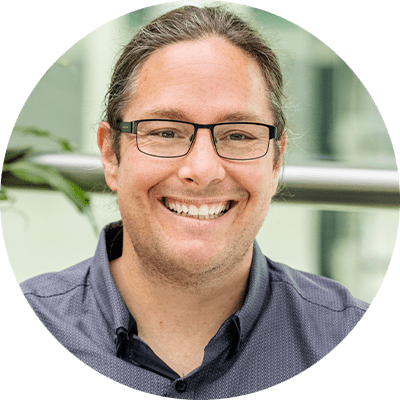When Luke Cantley was given the opportunity to join Flinders University and research Aboriginal child protection systems, he was keen, but thought it would put him on a steep learning curve.
His previous research project had been in prisons.
“Unfortunately, very quickly, I learned that the reasons why we see over-representation of Aboriginal people in the prison system, and why there's over-representation in the hospital system, are exactly the same with the child protection system.”
Ten times the number of Aboriginal and Torres Strait Islander children as non-Indigenous children are in care systems, with disastrous consequences for individuals, families and communities.
As a Research Associate, with the University’s College of Education, Psychology and Social Work, Mr Cantley is seeking a better way, one which works with Indigenous culture, rather than shying away from it.
“I've been talking to a lot of people over the past 18 months – practitioners and researchers, as well as people who have lived experience of being in the system,” he says.
“And the biggest thing that's coming out of those conversations is that we must take into account culture as a protective factor in terms of child protection matters.”
Fracturing an Aboriginal child’s connection to that culture by plunging them into an incomprehensible and alien world can lead to a trauma with lifelong effects.
Mr Cantley is looking at ways of maintaining a connection to culture, connection to country, but most importantly, connection to family in ways which also keep children safe.
“If there's an event that means a child is no longer safe within a family, then absolutely we must look at what we have to do to keep that child safe.
“But we need also to look at what networks are available. Are there other family members with whom we can place the child, so that they can remain safe and well, but within their own family?
“Because we know family and culture are pivotal as a young person develops their own identity.”
Mr Cantley sees the high proportion of Aboriginal children in protection as another effect of colonisation, where systems have been set up without much thought for cultural differences and sensitivities.
“Across all the systems – prison, health, child protection – the reason for over-representation of Aboriginal people can be categorised across predominantly three major themes,” he says.
“They are the impact of colonisation, systemic racism and social determinants, such as access to housing, access to health services and opportunities to build health literacy to understand how to navigate systems. So we can see the systemic racism and colonial legacies are compounding.”
Mr Cantley’s own family connections are with the Gunditjmara nation of western Victoria. He didn’t set out to be a researcher. His early career involved around working with Aboriginal people in different settings, such as the mental health system, and how to return people to community living after an inpatient episode.
“Across all the systems – prison, health, child protection – the reason for over-representation of Aboriginal people can be categorised across predominantly three major themes,”
He then focused on social housing where he learnt the importance of how having a decent roof over your head intersects with most other elements of wellbeing. Later work in primary health care showed him just how easily Aboriginal people could slip into homelessness after travelling to Adelaide to seek medical care.
His introduction to research was a study into the Aboriginal prison population, where people are stripped of their connections to country, culture and family.
“I was looking at what that would mean in terms of health outcomes, and that resulted in writing a model of care.
“So that was a real introduction to research for me and it kicked off this massive realisation that as an Aboriginal Health Worker, I had been able to gain health outcomes at an individual level, but as a researcher I can begin to achieve knowledge and understanding at a population level and start to work towards outcomes or implement strategies to tackle systemic issues specific to the Aboriginal community.”
He acknowledges change is not easy but the key, he says, is the understanding that there are points in people's lives – especially young ones – where intervention is a sliding door moment.
“It means that they can avoid this whole trajectory they had been heading on, and they can follow a different path, even if it's just slightly different, with a positive impact on their life as well as their families and community.”
Download your free copy of Fearless Research
![]()
Sturt Rd, Bedford Park
South Australia 5042
South Australia | Northern Territory
Global | Online
CRICOS Provider: 00114A TEQSA Provider ID: PRV12097 TEQSA category: Australian University










